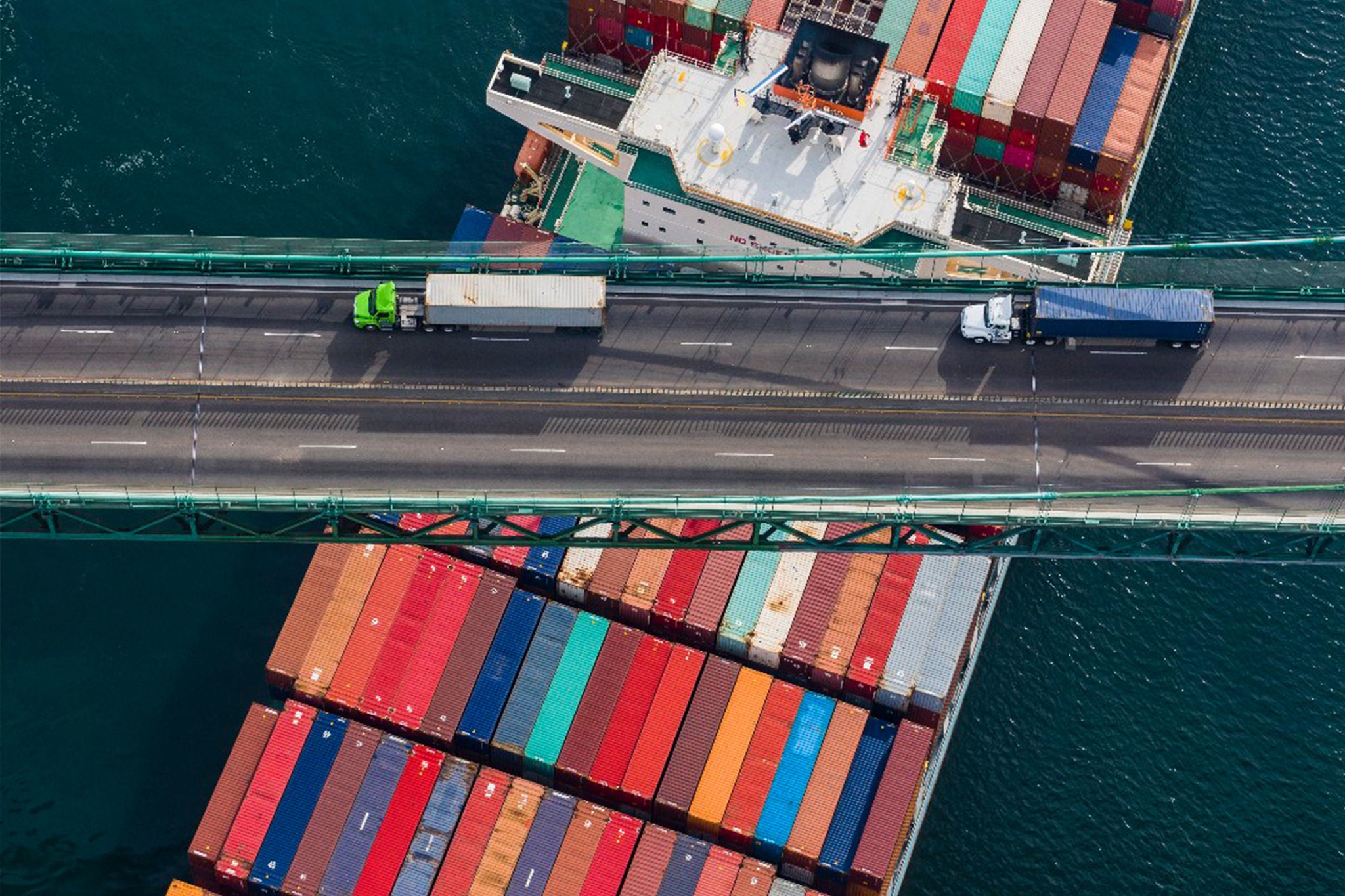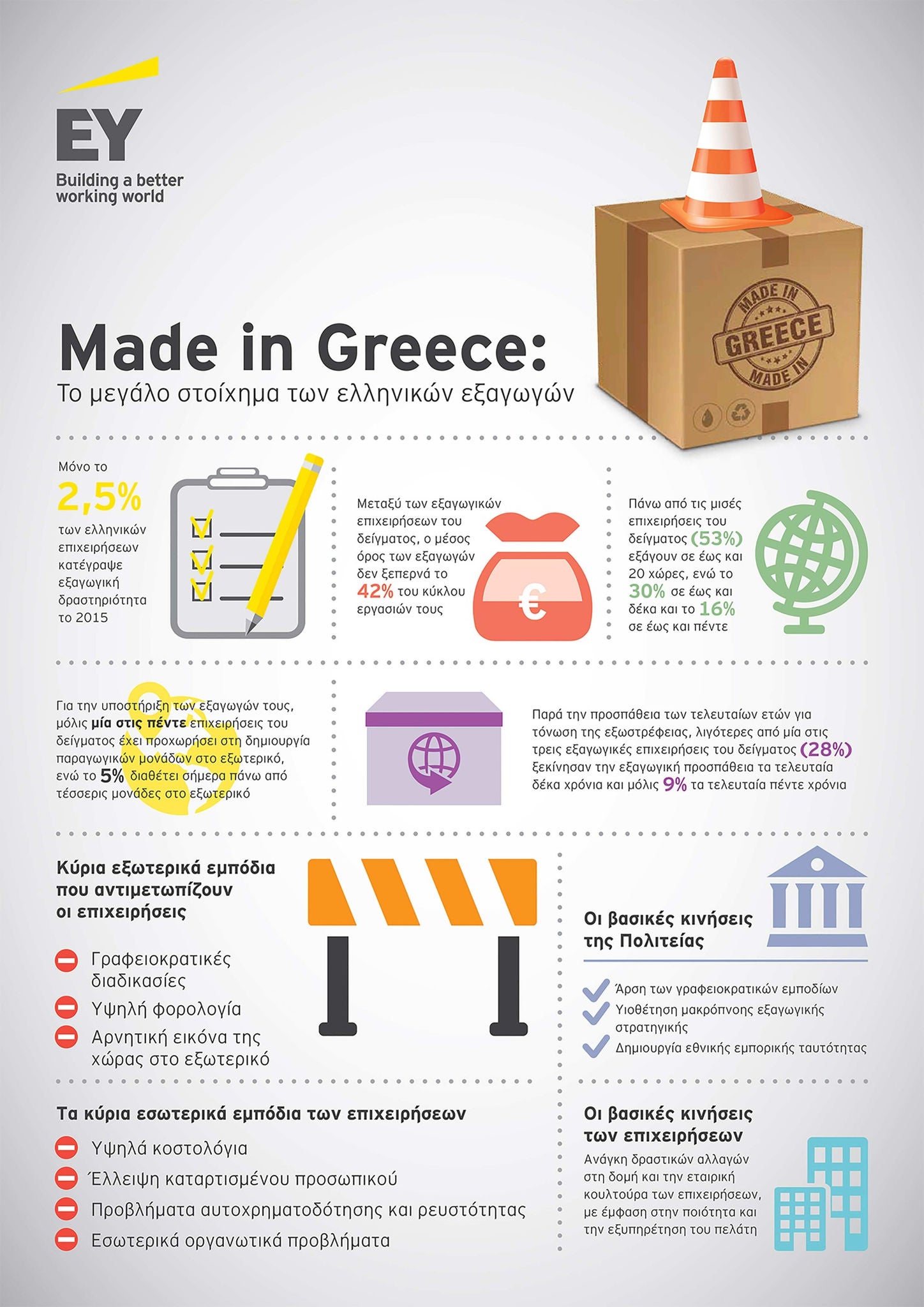EY refers to the global organization, and may refer to one or more, of the member firms of Ernst & Young Global Limited, each of which is a separate legal entity. Ernst & Young Global Limited, a UK company limited by guarantee, does not provide services to clients.

"Made in Greece: The Greek exports challenge"
In 2009, Greece was drawn into a deep crisis, because of a deficit in both state budget and competitiveness. In the years that followed, efforts to exit the crisis, as well as the public discussion surrounding the causes behind it, focused exclusively on the economic deficit. Today, the issue of the country’s extroversion remains one of the biggest bets for the Greek economy, as it sets out to achieve high and sustainable growth rates.
Greece has traditionally been a relatively closed economy with high deficits in its trade balance. Unlike other small economies that, due to the limited size of their domestic market, have turned to external markets, the Greek economy remained generally introvert. During 2007-2016, Greece’s exports to GDP ratio was 27% - the lowest among European Union countries.
Limited export activity, in conjunction with high import needs, led to a surging trade balance deficit, mirroring the steady deterioration of the country’s competitiveness, also leading to a significant current account deficit. This deterioration was one of the three primary factors that led to 2009’s economic crisis.
After the implementation of the structural adjustment programs, the country’s trade balance started to gradually improve, supported by continuous current account surpluses. However, this recovery can be attributed to a decrease in imports, rather than an increase in exports. Among the European countries that resorted to support programs, Greece was the only one failing to register a considerable increase in exports but is starting to show some promising signs.
The above show that the problem is structural and concerns both Greek companies as well as the Greek entrepreneurial environment in general. Therefore, the reasons behind the country’s limited extroversion can be traced back to the organizational structure, small size and other intrinsic characteristics of Greek enterprises, coupled with the lack of an institutional framework and strong motives.
These findings, as well as the structural problems of Greek companies, are examined in greater detail in our survey, Made in Greece: The Greek exports challenge.
EY has identified a number of structural changes needed in order for both Greek enterprises and the Greek State to win the exports challenge. The establishment of an exports culture, the change of organizational structures and the adoption of a new philosophy, are essential prerequisites for Greek export enterprises in order to succeed in foreign markets. The State should focus on creating a unified export apparatus devoid of all bureaucratic complexities, setting a long-term national export strategy, which will be further promoted by a distinct national brand.

Summary
Made in Greece: The Greek exports challenge, thoroughly examines both the internal and external obstacles that undermine Greek enterprises’ export activity. Greek enterprises need to reinvent themselves, and a national strategy must be developed, in order for Greece to win the exports challenge.




